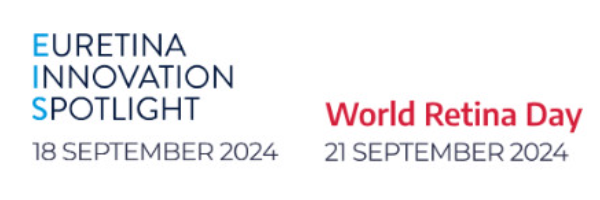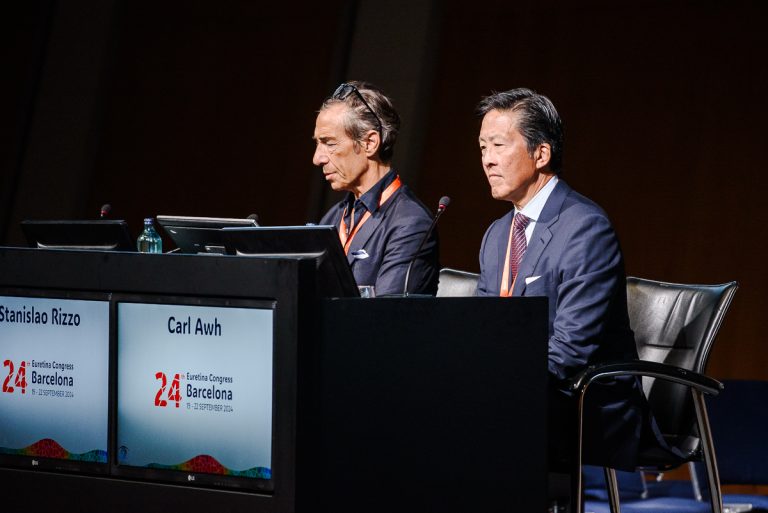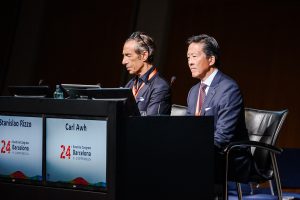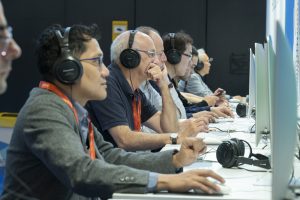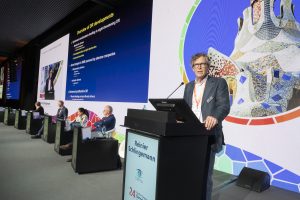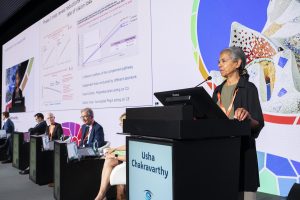World Retina Day provides a platform for international collaboration among clinicians and researchers in the field. That concept was clearly on display at the American Society of Retina Specialists (ASRS) World Retina Day session on Saturday afternoon where an international group of renowned retina specialists provided updates on cutting edge treatments.
“The membership of the ASRS includes many retina specialists who practice in countries outside the United States,” said Dr Carl C Awh (United States) who co-chaired the session with Dr Stanislao Rizzo (Italy). “We are delighted to showcase the international component of our society with our diverse faculty. However, it was a challenge to create the agenda for the symposium given that there are far more accomplished retina specialists capable of discussing important topics than there was time available in the programme.”
The topics addressed during the 1-hour session covered a broad spectrum within the retina field and touched on diagnostics, the optimal use of available treatments, and potential new therapies. Speaking about paradigms and rationales for the treatment of central serous chorioretinopathy (CSCR), Dr David Sarraf (United States) ran through the entire gamut of treatments for this condition, including well established treatments and newer concepts that relate to the treatment of acute CSCR and some forms of chronic disease.
Dr Varun Chaudhary (Canada) addressed the question of whether a discontinuous or continuous regimen is the correct algorithm for treating diabetic macular oedema. He concluded that the answer remains unknown based on available evidence but said that he hopes the ongoing DME-INSITE trial will provide valuable information.
The session also included talks about neovascular age-related macular degeneration (nAMD). Dr Anat Loewenstein (Israel) spoke about how artificial intelligence might optimise the potential of home OCT-guided management for this disease in patients receiving long-acting therapeutics. Dr Baruch Kuppermann (United States) gave a whirlwind tour through the growing landscape of recently available and emerging treatments for nAMD.
Emerging targeted pharmacotherapies for intraocular tumours was the focus of a talk by Dr Ivana Kim (United States). She discussed belzupacap sarotalocan and darovasertib for uveal melanoma and belzutifan (approved for non-ocular tumours) for von Hippel-Landau retinal hemangioblastoma. Dr Kim noted these agents may allow the use of less radiotherapy for patients with these tumours or even spare some patients from radiotherapy.
Investigational treatments for inherited retinal diseases (IRDs) were discussed by Dr SriniVas Sadda (United States). He focused on four optogenetics therapies that are at various stages in the premarketing clinical trial pathway.
Dr Awh observed, “Optogenetics is a technology unfamiliar to most retina specialists, but which may be well-suited to treatment of the transparent human eye. As reported by Dr Sadda, early phase trials have shown promise for this mutation-agnostic therapy for IRDs.”
Registered attendees can watch the session On Demand.
